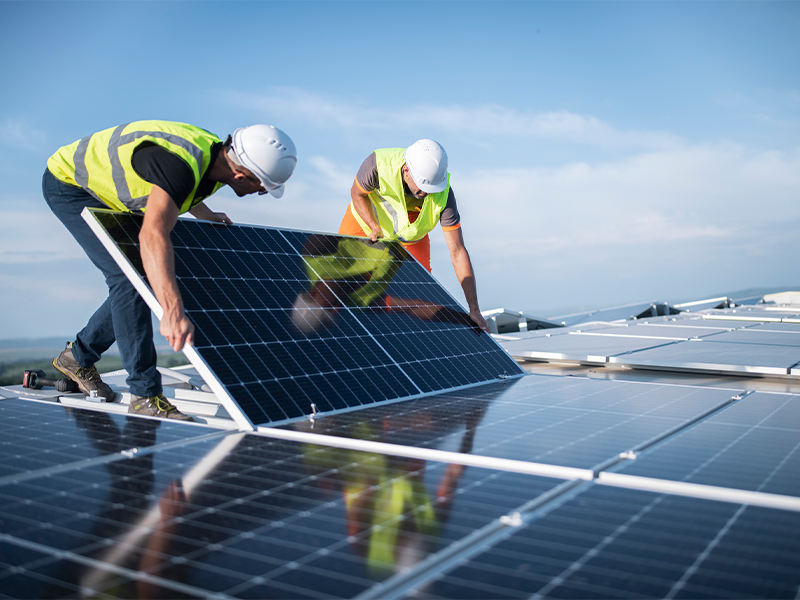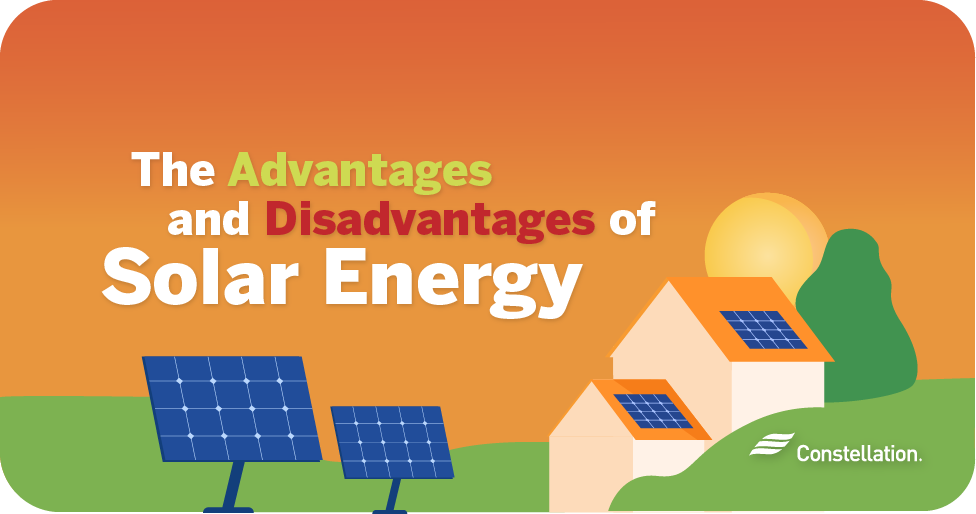Experience Affordable Clean Energy with Simply Solar Illinois
Wiki Article
How Solar Energy Can Aid You Save Money and Lower Your Carbon Footprint
The assimilation of solar power into your power portfolio provides an engaging opportunity for both economic savings and environmental stewardship. As different government motivations become readily available, the inquiry emerges: exactly how can one effectively navigate the preliminary investments and continuous benefits of solar technology to make best use of both financial and environmental gains?Comprehending Solar Energy Savings
While the transition to solar energy typically includes an initial financial investment, understanding solar power cost savings is essential for home owners and organizations alike. Solar power systems can substantially reduce electrical power bills by taking advantage of the sunlight's energy, converting into substantial long-lasting monetary advantages.Moreover, solar power systems might receive different economic incentives, including tax credit reports and rebates, better boosting their cost-effectiveness. The availability of web metering permits users to offer excess power back to the grid, creating an extra revenue stream. These aspects add to the overall financial savings connected with solar power.

In enhancement to guide financial savings, solar power supplies the added benefit of enhancing building value. Homes furnished with photovoltaic panels are usually more appealing to buyers, as they guarantee lower power expenses - Simply Solar Illinois. Comprehending these components is vital for any individual considering solar power, as it highlights not just the prospective monetary gains, yet additionally the more comprehensive ecological and economic benefits of taking on renewable energy options
First Costs vs. Long-Term Perks
When assessing solar energy, it is very important to evaluate the first expenses versus the long-term benefits. The in advance financial investment for solar panels, installment, and relevant devices can be substantial, often varying from $15,000 to $30,000, depending upon the system size and home power needs. This preliminary expenditure might prevent some home owners; nonetheless, it is critical to think about the possible cost savings with time.When set up, solar power systems can considerably reduce or even remove regular monthly electricity costs, causing considerable lasting economic advantages. Researches suggest that homeowners can save anywhere from $10,000 to $30,000 over the life expectancy of their planetary system, usually 25 years. Additionally, many states use incentives, tax obligation credit histories, and refunds that can balance out first expenses, making solar a lot more obtainable.

Lowering Your Carbon Impact
Minimizing your carbon impact is a vital consideration in today's ecologically mindful culture, and adopting solar power is one of one of the most efficient strategies to accomplish this goal. Solar power is a clean, eco-friendly source that considerably reduces reliance on nonrenewable fuel sources, which are significant factors to greenhouse gas emissions.
Moreover, the extensive adoption of solar modern technology encourages the growth of green tasks and sustains developments in power storage and efficiency. The even more people and companies purchase solar energy, the greater the collective reduction in carbon discharges, cultivating a cleaner environment for future generations.
Government Incentives and Refunds
Embracing solar energy not just profits the environment yet can additionally bring about substantial financial savings, specifically with the schedule of government motivations and refunds. Numerous federal, state, and neighborhood programs are designed to encourage house owners and organizations to purchase solar power systems, making the transition a More hints lot more affordable.One of the most prominent incentives is the Federal Investment Tax Obligation Credit (ITC), which enables solar system owners to subtract a substantial percent of the installation prices from their federal taxes. This reward has been essential in decreasing the upfront costs associated with solar energy systems. Furthermore, numerous states provide their own tax obligation credit histories, grants, and refunds that can additionally enhance financial savings.
Additionally, some regional governments supply home tax exceptions for solar installations, ensuring that house owners do not face enhanced real estate tax as a result of their renewable resource investments. Energy business may likewise use incentives, consisting of internet metering and feed-in tariffs, which enable solar power individuals to market excess power back to the grid.
Picking the Right Planetary System
Picking the suitable planetary system is critical for making the most of energy efficiency and monetary benefits. The decision hinges on a number of factors, including power requirements, budget plan, and offered room. Property owners ought to start by analyzing their power intake to figure out the system dimension needed for ideal performance.Following, take into consideration the various kinds of solar innovations offered. Simply Solar Illinois. Solar (PV) panels are one of the most usual, converting sunlight directly right into power, while solar thermal systems concentrate on home heating water. Each type has distinct benefits relying on specific demands
Budget plan considerations are additionally critical. First setup prices can differ significantly, so it is very important to compare quotes from multiple suppliers and check out funding options. Government motivations and rebates can better lower the economic burden, look what i found making solar systems a lot more easily accessible.
Verdict
The ecological benefits of solar power add to lasting practices critical for combating environment adjustment. Federal government rewards enhance the feasibility of solar technology adoption, urging a shift towards that site a cleaner, a lot more economically reliable power source.Report this wiki page